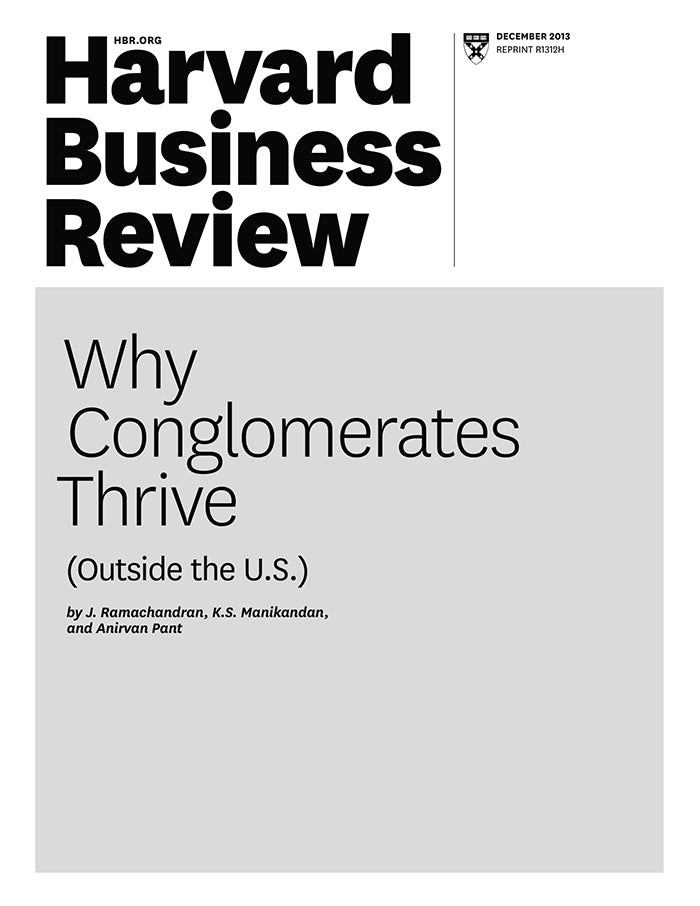Why Conglomerates Thrive (Outside the U.S.)
受取状況を読み込めませんでした
Conglomerates once dominated the U.S. business world. But by the 1980s, they'd been laid low by poor performance, inspiring the belief that focused corporations created more shareholder value. Today conglomerates are largely considered dinosaurs--except, that is, in emerging markets, where diversified business groups, comprising numerous unrelated enterprises, are flourishing. The authors, who studied Indian business groups for five years, believe that the key to these organizations' success is their structure. Unlike corporate divisions, a group's affiliate companies are legally independent. That allows them to raise capital, set strategies, and create incentives more effectively. Affiliates don't report directly to the leaders of the business group but are overseen by the group center, a management layer in the group chairperson's office. It coordinates the identity work that unites and inspires affiliates' employees, and helps affiliates spot and seize opportunities, share resources and talent, and collaborate on strategic activities. Business groups using this model are not only profitable; they also outperform other companies in their markets.
【書誌情報】
ページ数:11ページ
サイズ:A4
商品番号:HBSP-R1312H
発行日:2013/12/1
登録日:2013/12/10


